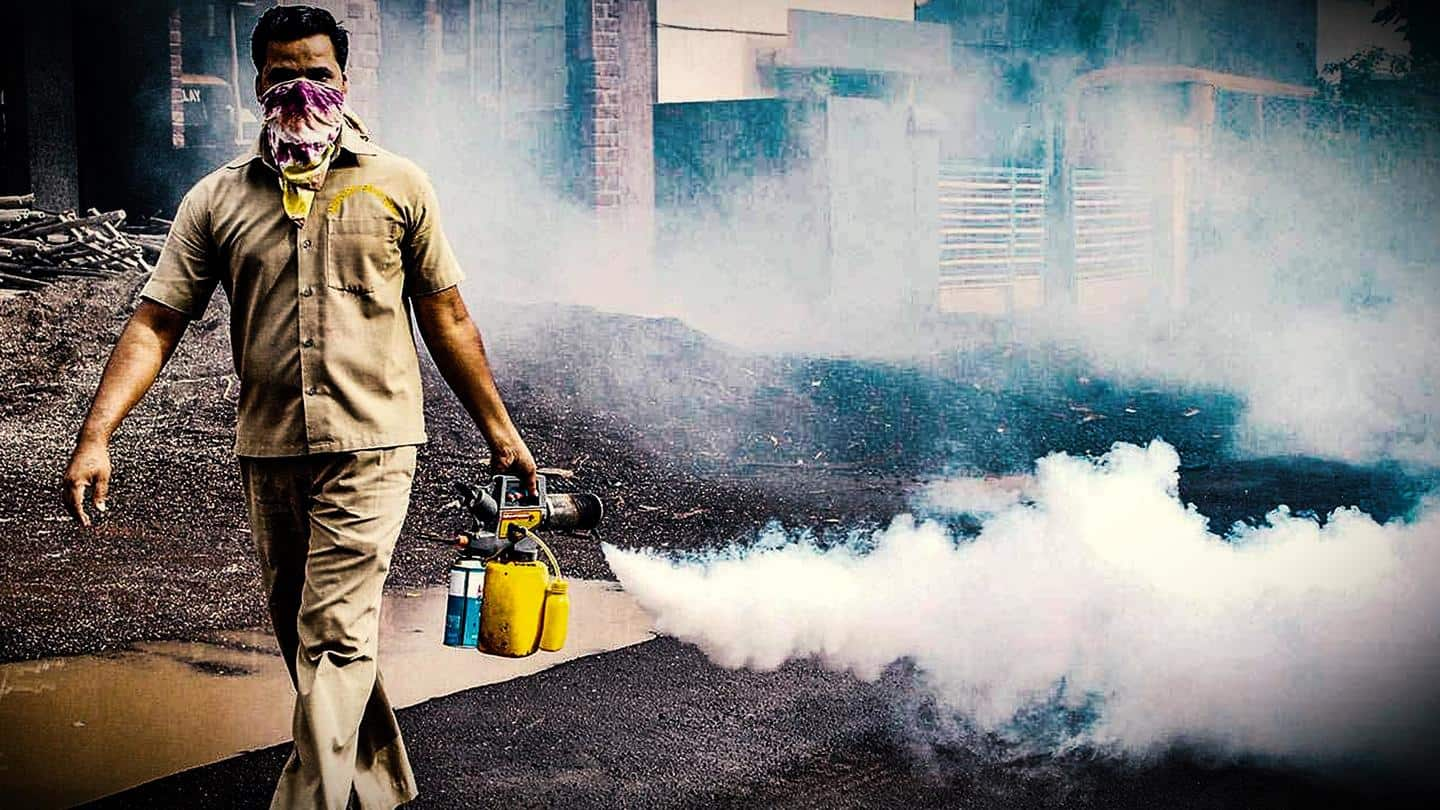
1,000 and counting: Delhi sees a surge in dengue cases
What's the story
Delhi has recorded more than 1,000 cases of dengue this year, with over 280 cases registered in the last week alone.
Of the total cases in the capital city this year, 665 (a whopping 66%) have come this month until October 23, according to a government report released on Monday.
The disease claimed its first death of the season in Delhi last month.
Context
Why does it matter?
Dengue cases in Delhi have risen sharply over the past few weeks, raising concerns for the public and the authorities.
Experts say record rainfall and insufficient measures to control mosquito breeding may be responsible for the spike in infections.
Further, with fears of a COVID-19 surge looming, the health infrastructure in the city may be staring at a troublesome time.
Details
1,006 dengue cases this year; 1 death
As of October 23, there were 1,006 dengue cases in Delhi this year, marking the highest case count for the same period since 2018.
The woman who died last month has been identified as Mamta Kashyap, aged about 35.
She was a resident of Sarita Vihar in South Delhi and died at a private hospital on September 28.
Information
Delhi's deadly dengue outbreak of 2015
To recall, Delhi had seen one of its deadliest dengue outbreaks in 2015. That year, more than 10,600 dengue cases were recorded and the disease claimed at least 60 lives, according to official data.
Disease
What is dengue?
Dengue is a mosquito-borne viral infection caused due to the bite of an infected Aedes aegypti or Aedes albopictus mosquito.
It causes symptoms such as fever, body ache, nausea, and vomiting.
In severe cases, it can lead to internal bleeding and a drop in blood pressure levels.
However, there is no specific treatment or vaccine to treat dengue yet.
Prevention
How to prevent dengue?
To prevent getting bitten by dengue-carrying mosquitoes, follow these steps:
1) Wear long-sleeve shirts and long pants.
2) Make sure to turn empty pots and buckets upside down.
3) Apply mosquito repellent creams and lotions on exposed areas of your body.
4) Block any openings/holes in your windows and door screens.
5) Use a mosquito net while sleeping.
6) Keep your dustbins well covered.